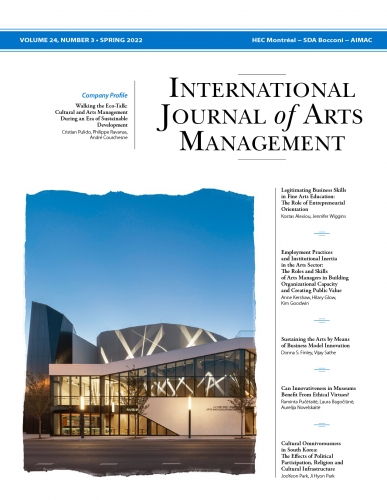Can Innovativeness in Museums Benefit From Ethical Virtues?
Produit: Article
21,00 $ CA
(en anglais seulement)
Raminta Pučėtaitė, Laura Bagočiūnė, Aurelija Novelskaitė
Raminta Pučėtaitė is an associate professor in the Kaunas faculty of Vilnius University, Lithuania, and adjunct professor at the University of Jyväskylä, Finland. She holds a doctoral degree in Management. Her research focuses on values management, ethical issues in human resource management, research and academic ethics, and sustainable innovation in a post-Soviet context.
Laura Bagočiūnė is a PhD student in Sociology at the Institute of Sociology of the Lithuanian Center for Social Sciences. Her background is in the field of cultural management. She holds a master’s degree in Marketing and Commerce Management from Vilnius University, Lithuania. Her PhD project focuses on the interrelation between gender and ethics in academic institutions.
Aurelija Novelskaitė is an associate professor in the Faculty of Communication and the Kaunas faculty of Vilnius University, Lithuania. She holds a doctoral degree in Sociology. Her research focuses on gender in academia, research and academic ethics, and empirical research methodologies.
ABSTRACT
This study is among the first attempts to examine the impact of an organization’s ethical culture on organizational innovativeness in the context of museums operating in post-Soviet society. The authors describe a relationship between the two constructs of social identity and person–organization fit theories. A survey of museum representatives in Lithuania, using the scales of the Corporate Ethical Virtue model and organizational innovativeness, indicates that the ethical virtue of discussability may determine product and behaviour innovativeness, congruency of supervisors is important to strengthening process and strategy innovativeness, and sanctionability affects market innovativeness. Managerial implications and avenues for further research are discussed.
KEYWORDS
Ethical organizational culture, ethical virtues, Lithuania, museums, organizational innovativeness

